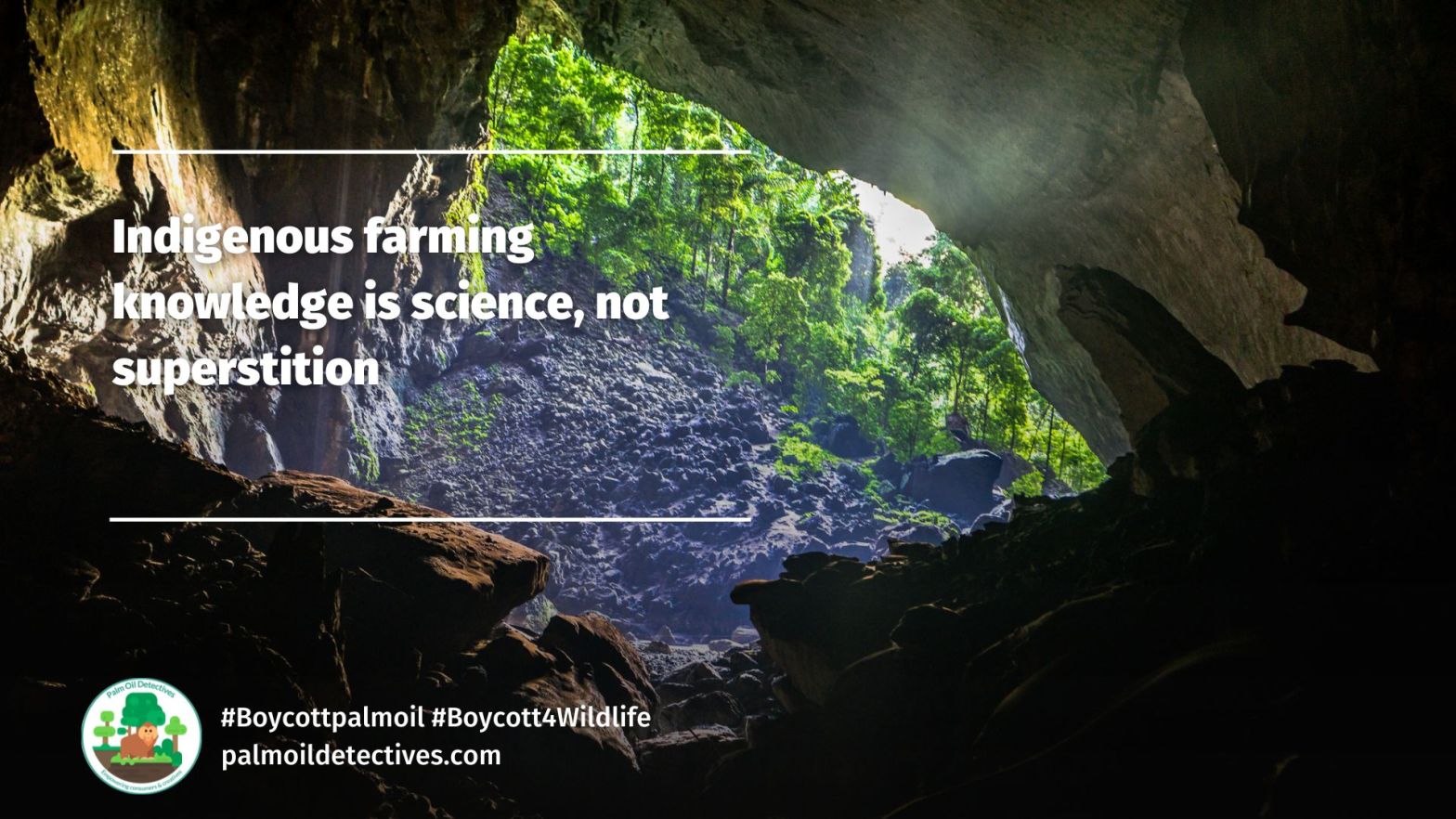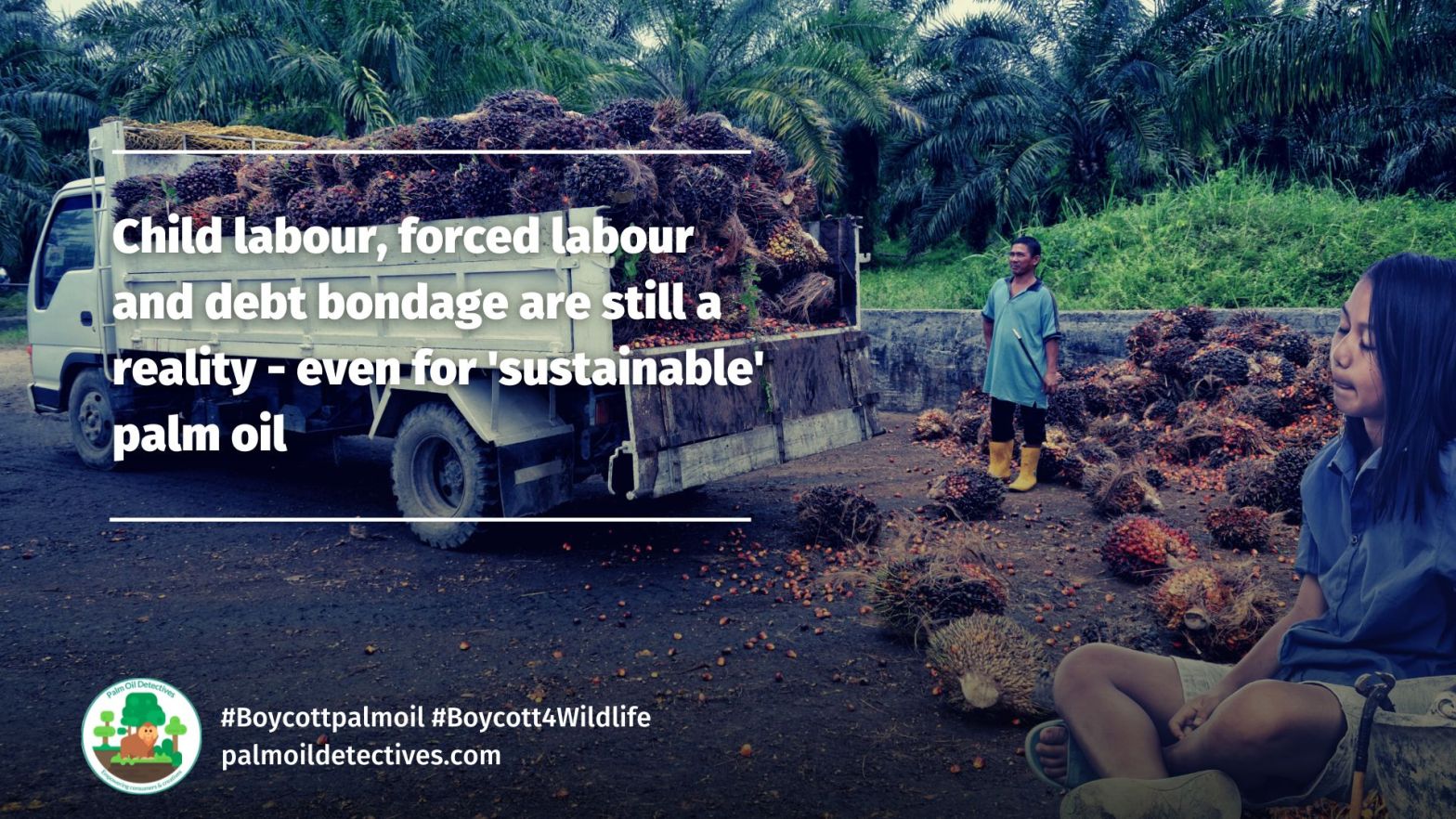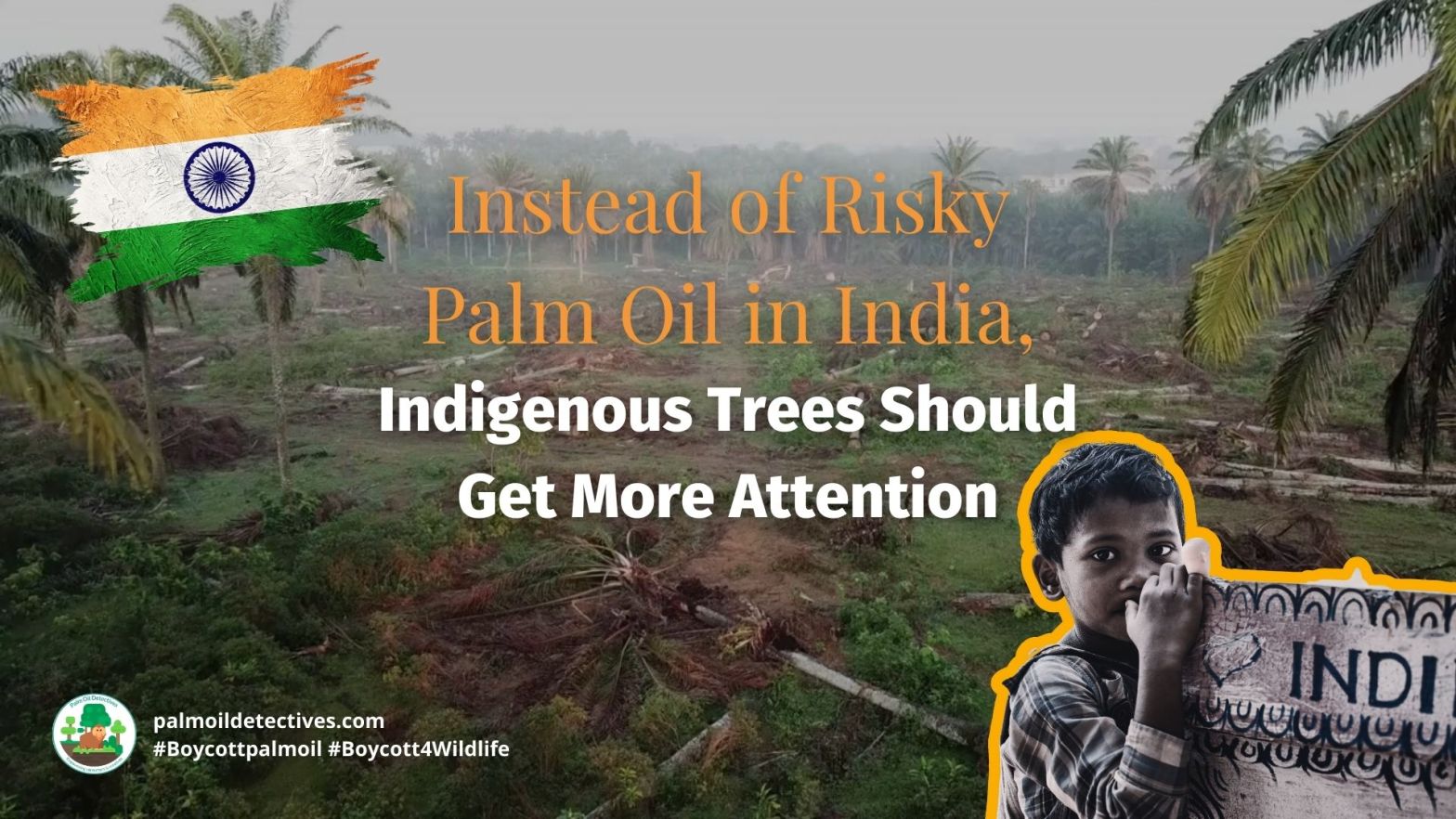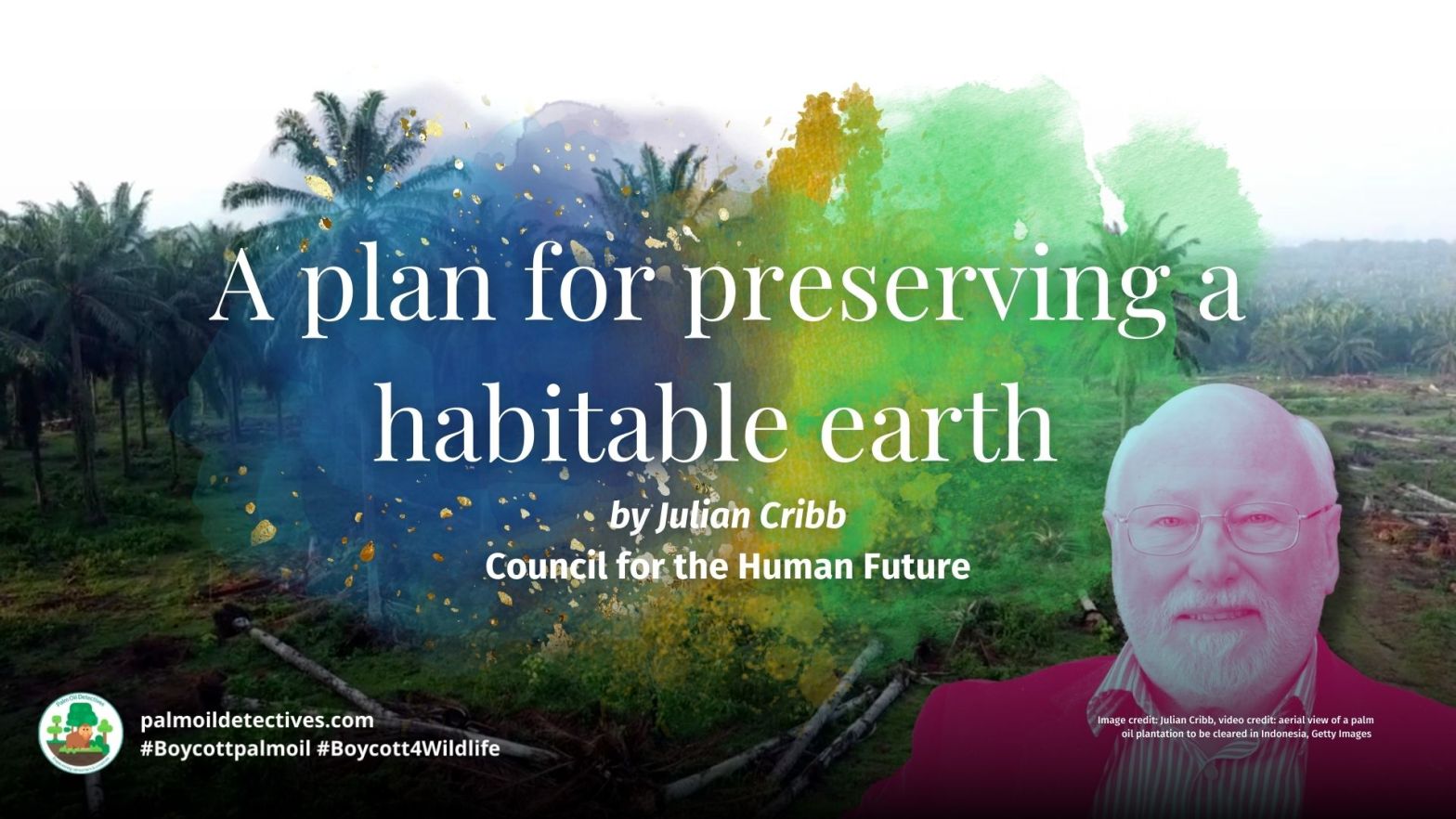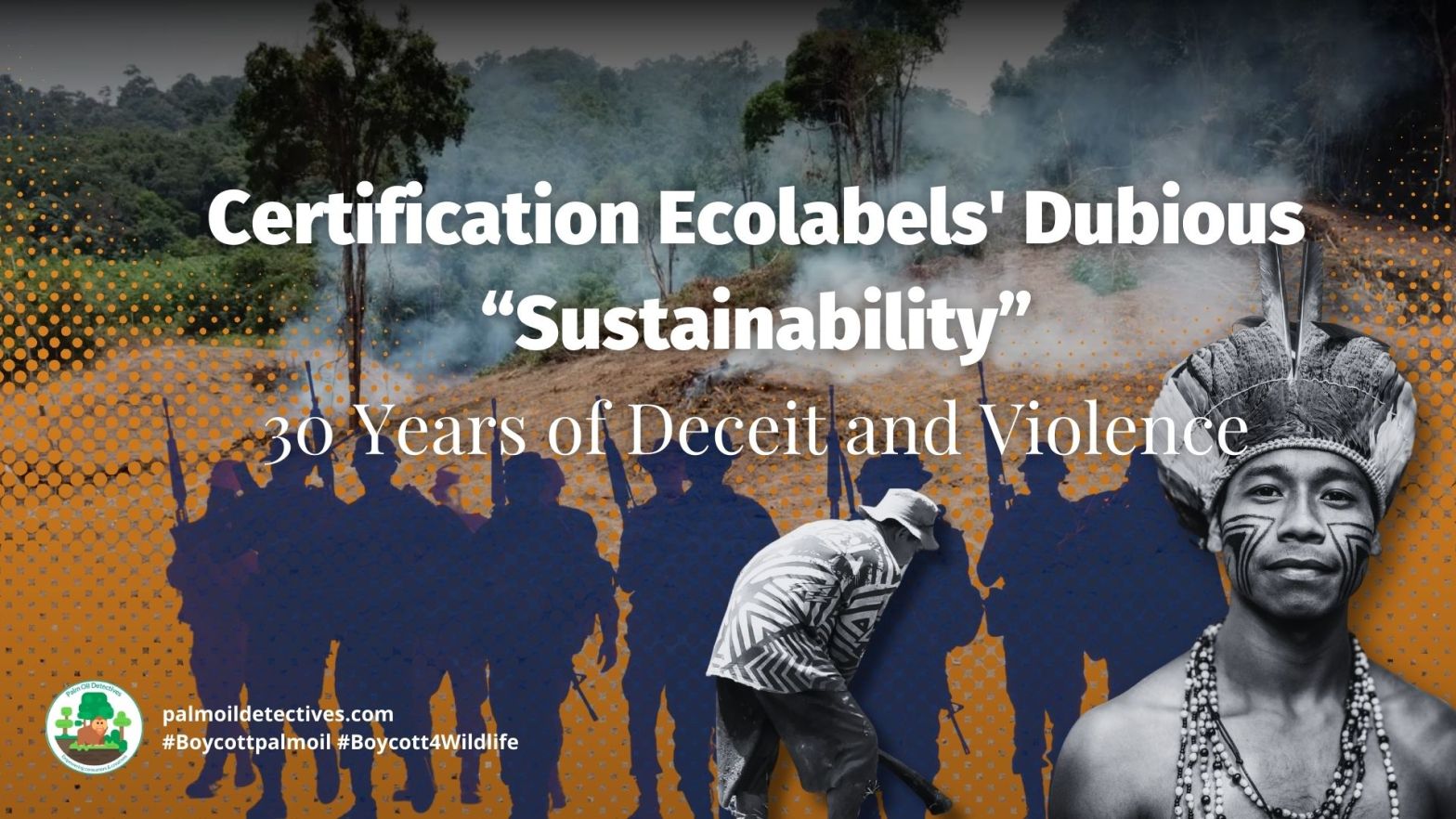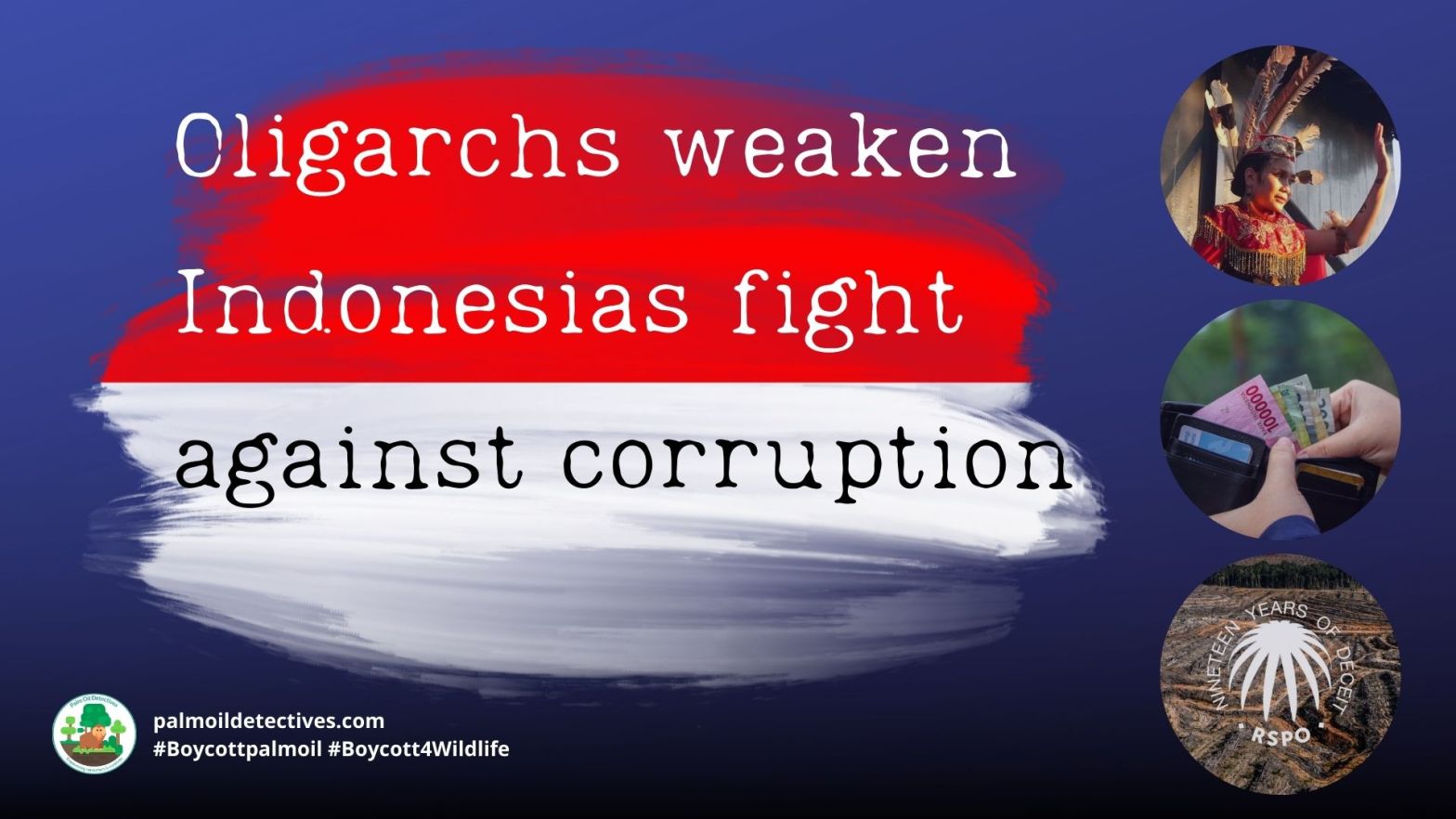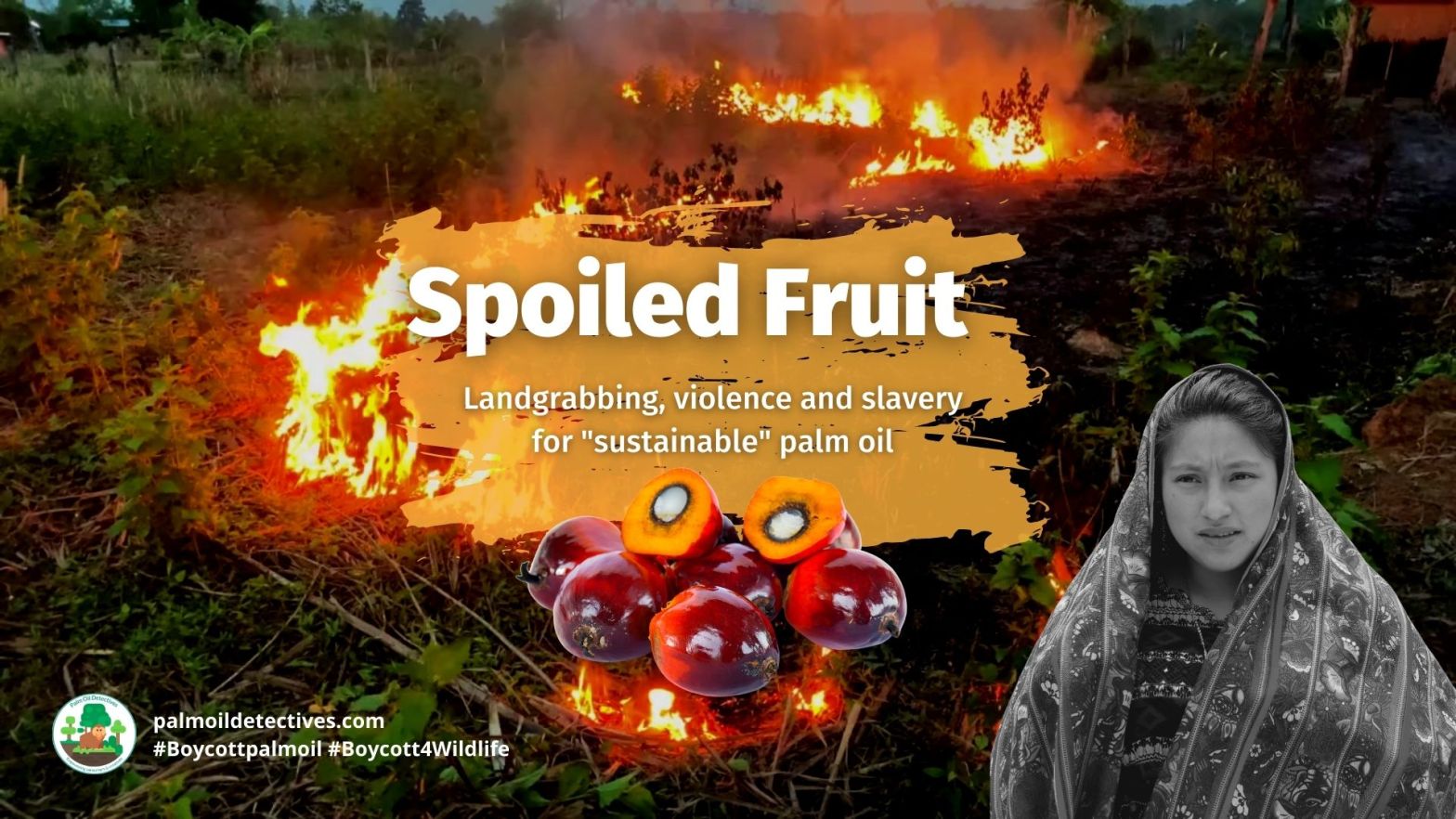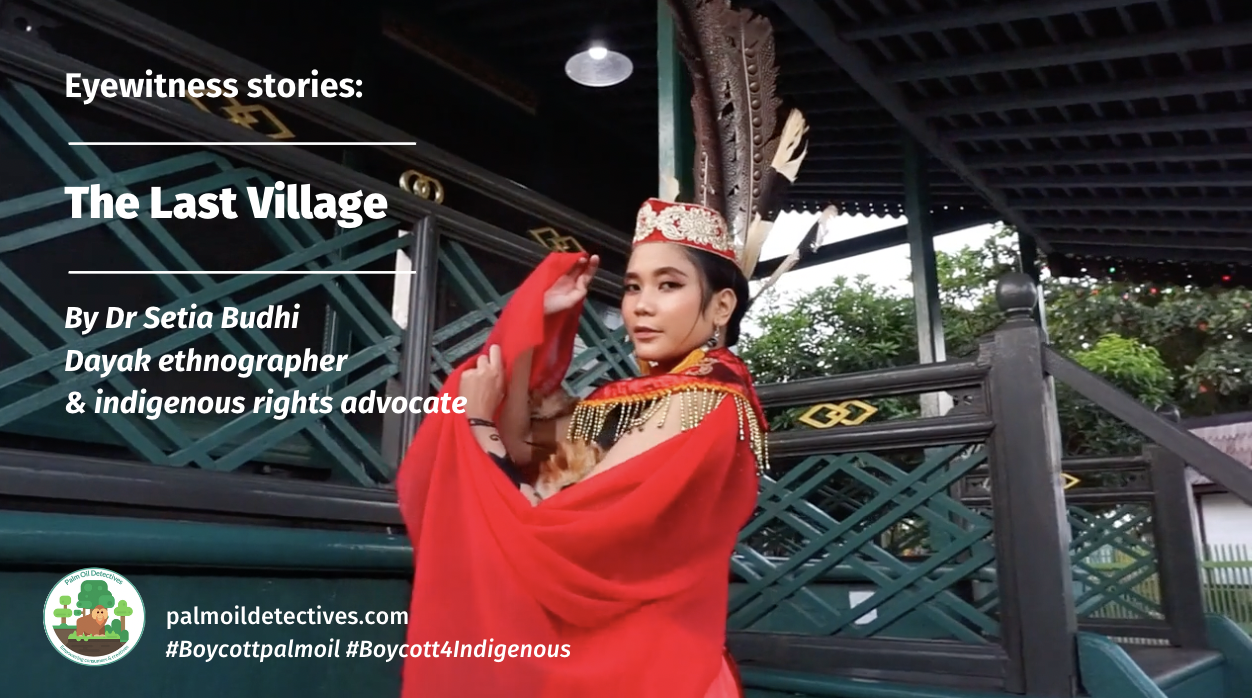What does it mean when you encounter snakes slithering along paths or find a bird nest with eggs? For Indigenous peoples in Malaysia, these are tell-tale signs passed down by their ancestors discouraging them from using the land. Instead, they must protect the area from unscrupulous developments.
Tag Archives: indigenous rights
Child labour, forced labour and debt bondage are still a reality – even for ‘sustainable’ palm oil
According to a new report from the Bureau for Workers’ Activities (ACTRAV) at the International Labour Organization (ILO). About 80% of the world’s poor live in rural areas where they face a myriad of human rights problems which hamper their ability to survive.
Problems include inadequate safety at work, low pay, lack of stability and security of work, and excessive working hours, with women and young workers.
Instead of Risky Palm Oil in India, Indigenous Trees Should Get More Attention
In an effort to combat India’s edible oil shortage, the Indian government has heavily promoted the cultivation of exotic palm oil trees. This is a decision mired in controversy due to the associated severe ecological repercussions witnessed in other nations. The thirst for high rainfall, crucial for palm oil’s yield, threatens India’s already dwindling groundwater reserves. Notably, proposals to introduce palm oil in the ecologically sensitive regions of Assam and the North East have sparked significant backlash. Bharat Dogra, a renowned writer and commentator, advocates for a shift in focus, suggesting that the solution may lie in harnessing the potential of indigenous trees capable of producing oilseeds for edible oil.
Op-Ed: A plan for preserving a habitable earth by Julian Cribb
Renowned and prolific science communicator and author Julian Cribb writes this op-ed piece for Palm Oil Detectives. He addresses the world’s most pressing needs for survival as we descend into the pointy end of the Anthropocene era.
Julian outlines a dozen direct and actionable solutions for preserving a healthy and habitable earth. These are taken from his interviews with the world’s brightest minds. For a more in-depth analysis, be sure to grab a copy of his most recent book, published this year – ‘How to Fix a Broken Planet’
Certification Ecolabels’ Dubious “Sustainability”: 30 Years of Deceit and Violence
Ecolabels like RSPO and FSC are involved in networks of extensive greenwashing. They exist to conceal corporations’ environmental damage rather than fighting it. With three decades dubious promises from environmental certifications, World Rainforest Movement calls for a swift end to this disgraceful palm oil, soy and timber industry greenwashing. You can help resist palm oil colonialism and ecocide #Boycottpalmoil #Boycott4Wildlife every time you shop!
India’s Palm Oil Push Leaves Northeast Indian Farmers, Forests and Animals at Risk
Palmoil cultivation in India’s northeast is devastating natural ecology with increased human-animal conflicts and ecocide leaving farmers, forests and animals at risk #Boycottpalmoil #Boycott4Wildlife
Transparency International report: corruption and corporate capture in Indonesia’s Top 50 palm oil companies
According to a May 2023 report by Transparency International, the top 50 palm oil companies in Indonesia are beset by deep problems: a lack of transparency in company ownership and who are the ultimate beneficiaries of profits, conflicts of interest, revolving-door politics, and politically exposed persons within companies.
All of the above makes the palm oil industry in Indonesia seriously susceptible to corporate capture and corruption. Don’t trust palm oil. Instead #Boycottpalmoil #Boycott4Wildlife every time you shop
The CUT Campaign and its partners ask MP Kemi Badenoch to keep UK tariffs palm oil to prevent ecocide
Last month UK Tory MP Kemi Badenoch announced that a new UK trade deal would cut tariffs on palm oil imports from 12% to zero.
This move will likely grease the way towards the UK importing palm oil deforestation and human rights abuses from Malaysia and Indonesia into the UK.
Environmental groups: CUT Campaign, Palm Oil Detectives, Bruno Manser Fond, Save Rivers, Extinction Rebellion and many others strongly object to this decision by the UK government. Read on below to watch the video, sign the petition and join the #Boycottpalmoil #Boycott4Wildlife movement to take action against palm oil greed and ecocide.
Dwindling tropical rainforests mean lost medicines yet to be discovered in their plants
About 80% of the world population relies on compounds derived from plants for medicines to treat various ailments, such as malaria and cancer, and to suppress pain. Our future medicines are likely to come from plants, but how effectively are we protecting these plants from extinction? We aren’t doing enough and we must do more!
The right for nature to simply exist is clear – the movement to enshrine this into law is growing
The idea that nature — forests , rivers, mountains — could have rights, in the same way that human rights, or corporate rights exist has been building momentum.
The dying days of 2022 saw a historic global agreement reached to try to protect the plants and animals of this world from further demise.
‘Just the beginning’: dawn of greenwash era for journalism in Asia?
Curtailed press freedom in Asia makes the job of calling out greenwashing increasingly difficult – at a time when corporate accountability is critical in the fight against climate change. Experts think greenwashing is only just beginning as PR firms try to mislead regulators, investors and consumers writes Robin Hicks for Eco Business News.
Oligarchs weaken Indonesia’s fight against corruption
Indonesia’s efforts to fight government corruption are being corrupted from within parliament and backed by big palm oil, timber and mining businesses. Story via 360Info. Fight back every time you shop, #Boycottpalmoil #Boycott4Wildlife
RSPO member SIAT leaves Nigerian farmers without food. Leases their illegally taken land for €1.23 Euros per hectare, per year
A 5-month investigation by Elfredah Kevin-Alerechi and Kevin Woke of Sahara Reporters reveals how RSPO member SIAT Nigeria Limited is involved in human rights abuses and land-grabbing on host communities’ lands. Journalists Elfredah Kevin-Alerechi and Kevin Woke also discovered that palm oil company SIAT who illegally took their land are leasing it for a mere 600 Naira (N600) per hectare annually – the equivalent of €1.23 Euros per year to lease it.
River pollution by pesticides and restriction by the company to land, where locals can grow food has meant that their food and water supply is contaminated – starvation is now an urgent problem.
All of this occurs under the guise of “sustainable” palm oil pushed by the RSPO to consumers. SIAT’s palm oil is used in consumer products by PZ Cussons (source), Nestle (source) and Danone (source). This is wh you should #Boycottpalmoil
Story via Sahara Reporters. Additional info: Chain Reaction Research
India’s oil palm goals raise fears of deforestation and extinction
A corporate monopoly for control over land and resources for palm oil must be dismantled immediately to give humanity, animals and our natural world a fighting chance for survival and to reverse the climate crisis. In Asia, many indigenous peoples are now joining forces and rising up to resist this corruption and ecocide.
Indonesia’s misinformation army ready for war in 2023
With controversial law reform, an election and a ban on deforestation palm oil in EU – In 2023, Indonesia’s government is set to ratchet up greenwashing, propaganda and misinformation on social media.
But the biggest propagator of disinformation seems not to be political renegades, but the Widodo administration. Fuelled by a well-resourced propaganda machine, the government is ready to fight dirty to win over public opinion.
Story via 360Info.org.
Written by By Ika Idris, Monash University Indonesia, Laeeq Khan, Ohio University, and Nuurrianti Jalli, Northern State University in Tangerang. January 16 2023 for 360Info.org. Dr Ika Idris is an associate professor at Public Policy & Management, Monash University Indonesia. Her works focus on government communication, misinformation, and the internet’s impacts on society. Republished here with a Creative Commons Licence.
#Boycottpalmoil #Boycott4Wildlife
Will palm oil watchdog RSPO rid itself of deforestation or continue to pretend its products are sustainable? – EIA
Palm oil produced through the destruction of forestland is still being sold around the world with the blessing of the Roundtable on Sustainable Palm Oil (RSPO).
On November 30, 2022 EIA and along with 99 other organisations issued a joint statement calling time on the RSPO and its habitual greenwashing – the act of giving the public or investors misleading or false information about the environmental impacts of a company’s products and activities.
Roundtable on Sustainable Palm Oil: 19 years is enough
For nearly two decades now, the RSPO has failed in its mission to make the industrial palm oil sector “sustainable”. Instead, it has been used by the palm oil industry to greenwash environmental destruction, labour and human rights abuses and land grabbing.
Spoiled Fruit: Land-grabbing, violence and slavery for “sustainable” palm oil
C4ADS analysis shows that the food conglomerates that feed millions—including giants such as Nestlé, Cargill, Adani Wilmar, IOI, Olenex and more —continue to enable forced labor through their indiscriminate import of tainted palm oil associated with slavery, indigenous land-grabbing, deforestation and human misery in the developing world.
Land-grabbing and the climate crisis are strongly linked to palm oil
A corporate monopoly for control over land and resources for palm oil must be dismantled immediately to give humanity, animals and our natural world a fighting chance for survival and to reverse the climate crisis. In Asia, many indigenous peoples are now joining forces and rising up to resist this corruption and ecocide.
Eyewitness Story by Dr Setia Budhi: The Last Village
A lone Dayak village in Borneo surrounded by palm oil plantations has held out for 14 years and resisted
corporate infiltration by global palm oil giants. My name is Dr Setia Budhi, I am a Dayak ethnographer and human rights advocate. I visited this village recently to see how they were going.

